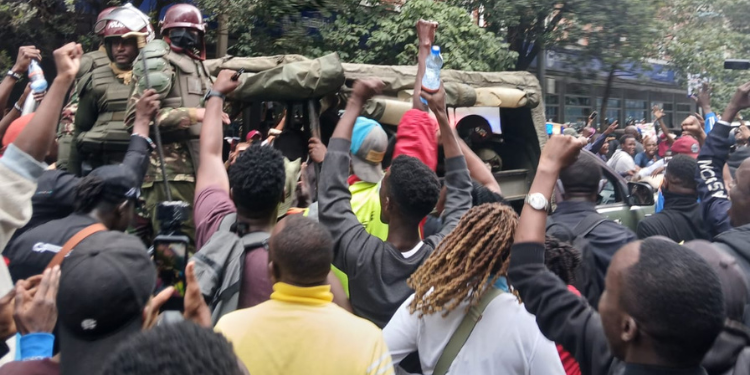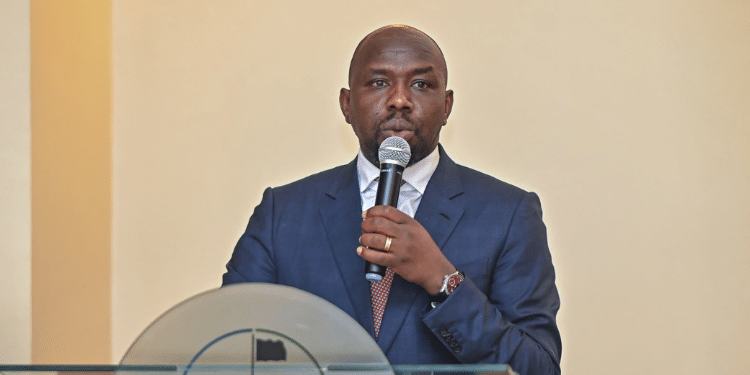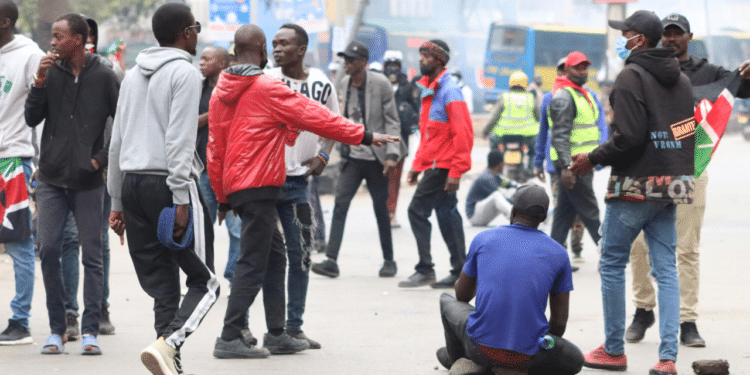As the echoes of discontent reverberate through the streets of Kenya, a historical parallel emerges, drawing stark comparisons between the current Gen Z revolution and the seismic upheaval of the French Revolution.
The French Revolution, sparked by rampant inequality, widespread joblessness, and a disdain for the ruling aristocracy, finds its modern counterpart in Kenya’s youthful uprising.
In the 18th century, France’s clergy, ostensibly neutral, often sided with the ruling elite, exacerbating societal divides. Similarly, Kenya’s religious leaders, once bastions of moral guidance, have been accused of aligning with political powers, inadvertently stoking the flames of dissent.
This alignment has only fueled the Gen Z revolution, as the youth perceive a betrayal of trust from institutions meant to safeguard their interests.
Joblessness, a crippling issue in pre-revolutionary France, mirrors the plight of Kenyan youth today. Unemployment rates soar, leaving a generation adrift, their aspirations thwarted by economic stagnation.

This frustration has become the bedrock of their revolt, much like it did in France, where economic despair translated into revolutionary fervor.
Similarities in Both Gen Z revolution and French Revolution
The problems plaguing both eras are eerily similar: economic inequality, political disenfranchisement, and a sense of betrayal by the ruling class. In France, King Louis XVI’s indifference and subsequent attempts to suppress dissent only inflamed revolutionary sentiments.
President William Ruto, in the eyes of many Kenyan youth, embodies a modern-day King Louis—aloof, detached, and perceived as dismissive of their struggles. His government’s perceived arrogance and failure to address the core issues resonate with the disdain the French felt for their monarchy.
Also Read: How Kalonzo & Gen Zs Can Shape Ruto’s 2027 Re-Election Bid; Experts
The storming of the Bastille in 1789 symbolized a pivotal moment in the French Revolution, an act of defiance that shattered the old order. Kenya’s youth have mirrored this tactic by occupying parliament and other government institutions, challenging the status quo and demanding accountability.
This occupation is a direct confrontation, a modern-day Bastille moment, highlighting their resolve to bring about change.
Tactically, both movements employ a mix of organized protests and spontaneous acts of defiance. The French revolutionaries used pamphlets, salons, and public speeches to galvanize support.
Kenya’s Gen Z utilizes social media, leveraging digital platforms to rally, inform, and mobilize. The digital age has amplified their voices, making their calls for justice and reform harder to ignore.
Impact of youth Revolution
Gen Z is radically altering Kenya’s political landscape, much like the French revolutionaries reshaped France. Their discontent is not just with unemployment but with a system they view as inherently corrupt and unjust.

The Kenyan aristocracy, characterized by political elites and their cronies, is perceived as perpetuating policies that exacerbate inequality and hinder progress. Taxation, a flashpoint in both revolutions, remains a contentious issue, with many feeling the burden falls disproportionately on the less affluent, fueling anger and resentment.
Also Read: Ruto: Why I Picked ODM Politicians & My Friends to Cabinet
The Gen Z revolution has the potential to shape modern democracy in Kenya, demonstrating the power inherent in the will of the people. Their actions underscore a fundamental democratic principle: that governance should be by the people, for the people.
However, if not handled with sensitivity and a genuine commitment to reform, there lies the grim possibility of descending into a reign of terror, where chaos and retribution overshadow the pursuit of justice and equity.
The upheaval in Kenya, driven by a deep-seated disgust with the existing order, stands as a testament to the enduring power of collective action. As history unfolds, the parallels with the French Revolution serve as both a warning and a beacon, highlighting the transformative potential of youthful resolve and the perils of ignoring their call for change.
This article was written by Kubai Njuguna, a Nairobi based Public Relations Consultant
Follow our WhatsApp Channel for real-time news updates:
https://whatsapp.com/channel/0029VaB3k54HltYFiQ1f2i2C












































































